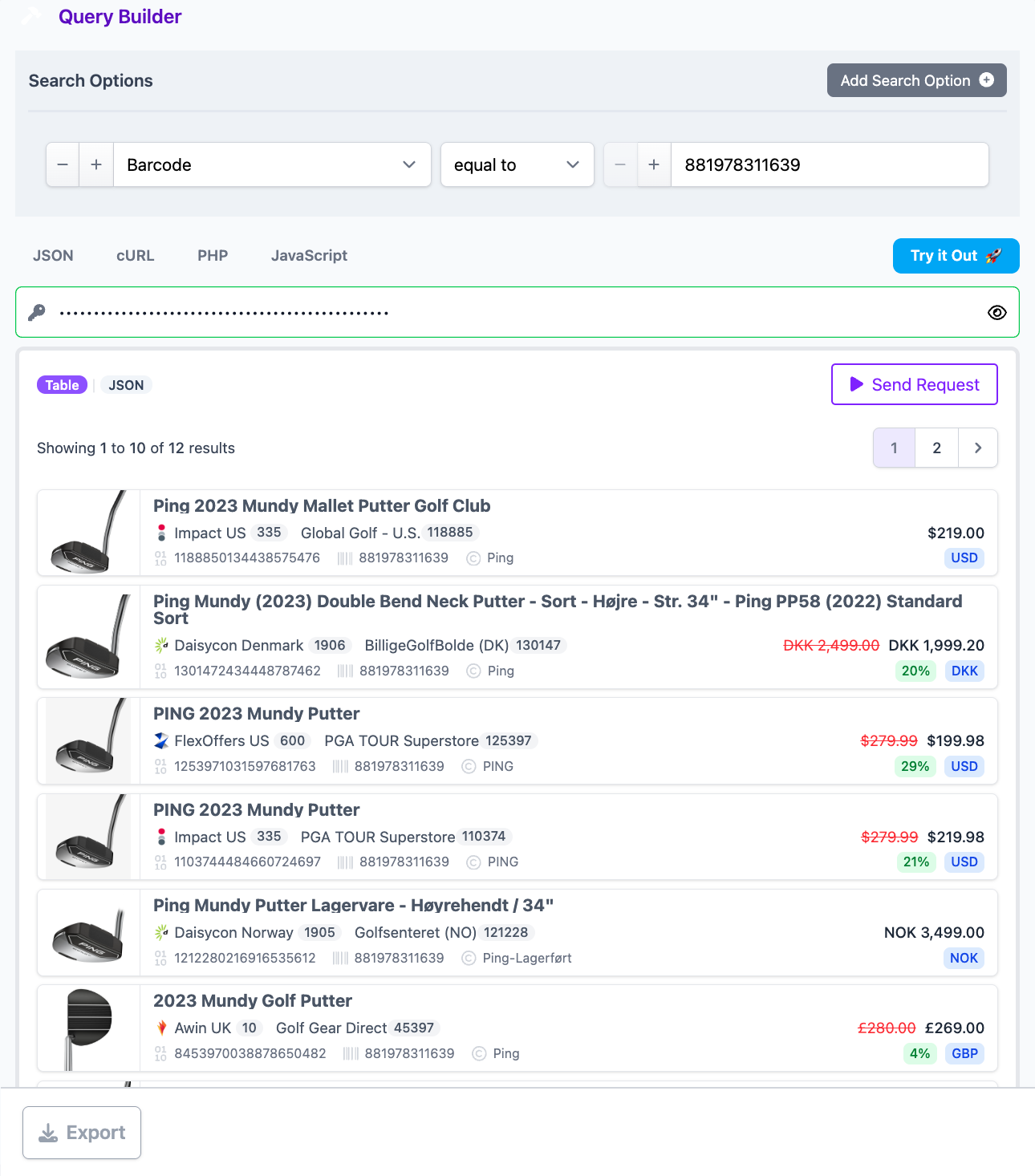Global Product Data in One Platform

Global Product Data in One Platform means your team can search, normalize, and compare products across more than thirty affiliate networks and over a billion products without jumping between systems. In Affiliate.com, one query spans countries and networks while you stay in control of identifiers, currency, and governance.
The payoff is precision at scale. Match identical products across merchants even when titles differ, compare prices within a market, and build clean selections you can share as links or promote as Comparison Sets. Your editorial standards stay intact while coverage widens.

Why unified global data matters
Titles, currencies, and availability vary by market. A unified index with strong identifiers turns fragmented feeds into a coherent dataset. Barcode, SKU, MPN, or ASIN anchor exact matching. Currency fields keep results scoped to a locale or allow planned cross currency comparisons. Deduplication lets you decide whether to present one canonical product with many offers or a full offer table.
How global discovery works in Affiliate.com
Affiliate.com normalizes core fields from networks and merchants, then makes them queryable.
- Identifiers: barcode, SKU, MPN, ASIN for exact product identity
- Pricing: regular price, final price, sale price, sale discount, ship price, currency
- Availability: in stock, stock quantity, availability, commissionable status
- Source controls: network name, Network ID, merchant name, Merchant ID
- Search options: any, name, description, brand, category plus limit, sort, deduplication, last updated
You can search broadly, then layer filters to fit your market, program rules, and story.
Mini workflow: cross region product comparison
- Start with the any field or name to find a model.
- Pivot to an identifier. Barcode is ideal for cross merchant and cross network matching.
- Add currency equals your target market and set a price floor or ceiling.
- Require in stock equals true to avoid dead clicks.
- Choose presentation. Keep deduplication on for a single canonical row with many offers. Turn deduplication off when you want every qualified offer for a complete price table.
- Save the selection as a Comparison Set and pass the share link to reviewers or render it in a snippet.
Practical use cases with global data
- Find more merchants already selling the product your audience wants. Use barcode or MPN to reveal additional offers across your connected networks.
- Compare across markets with intention. Scope by currency for local pages. When you must cross borders, keep currency visible and explain context in copy.
- Build complete product sets. Mix identifier anchored single product comparisons with curated category lists filtered by brand, category, and price.
- Power international experiences. Use Network ID and Merchant ID filters to create allowlists per region while reusing the same query logic.
From global search to live pages
Once your selection is dialed, copy the shareable query link or save it as a Comparison Set. Choose a snippet layout that matches intent, Single Product for a hero callout, Price Comparison for an offer table, or Vertical Products for a compact list. If your team prefers code, use the Product Search API with the same fields outlined above.
